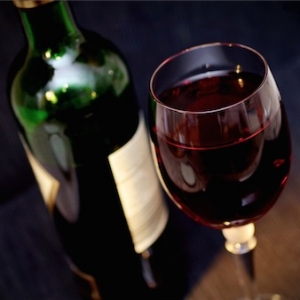The Chinese wine industry has been in the spotlight over the last 12 months with talk of plummeting sales amid President Xi Jinping’s anti-graft crackdown. But China still remains an important market for New Zealand wine producers.
If you are already exporting your wine to China or are intending to do so, devising a brand strategy is crucial. In this two-part series, we look at how to best protect your key brand asset – your trade mark – and pitfalls to be aware of, like counterfeit wine.
Don’t be a victim of trade mark squatters
Laws providing for the protection and enforcement of trade marks are relatively new in China – but there are some key differences between the laws in China and those that apply in New Zealand.
In China, the first person to register a trade mark is recognised as the rightful owner. This is called the ‘first to file’ rule. This rule is different to common law countries, like New Zealand and Australia, which recognise the first person to use the mark or the first person to register the mark instead.
The difficulty with the first to file rule is that it makes trade mark squatting a legal activity. There are countless examples of both local and global brands (Air Jordan, Burberry and Tesla, to name a few) that have been lost to squatters in China. Not only has this created a cottage industry for opportunists, but it leaves businesses with little choice but to buy back their own trade mark at an exorbitant price or relaunch under another brand in China.
Unfortunately, New Zealand wine producers are not immune to this practice. Last year, a Hawke’s Bay wine producer was surprised to learn that its trade mark had been registered by an unknown third party in China. The registered trade mark was identical to the producer’s own mark, right down to the stylisation of the words. The wine producer is now involved in protracted and expensive legal proceedings to try and claw back its own mark.
The best form of protection is to beat the squatters at their own game and get in first and file an application to register your trade mark. This should be high on any action plan, whether breaking into the Chinese market is a short or long-term goal. It’s a lot cheaper to file a trade mark application than to try and negotiate with or litigate against a squatter down the track.
Consider Chinese names and characters
For Chinese consumers, the Chinese name and associated characters of a wine are more important that the English version – even if your English mark is well-known. When protecting your trade mark in China, it is important to file applications for all versions of the mark, including the English version, a Chinese version, and also a version in Chinese characters.
It is a lesson that is being learnt the hard way by Treasury Wine Estates, the owner of the Penfolds brand. Treasury Wine Estates had selected the Chinese version of its name Ben Fu, which means ‘chasing prosperity/wealth’. But, they failed to register the mark Ben Fu in China. For the past three years, Treasury Wine Estates has been embroiled in litigation with a notorious trade mark squatter, Li Daozhi, who runs a Chinese wine company and owns the Chinese registration for Ben Fu. The ongoing court case has seen sales of Penfolds wine drop in China, as suppliers are scared that they could be liable to pay damages to the squatter for any wine they sell. Even if Treasury Wine Estates is successful in its case against the squatter, there could be long-term damage to the Penfolds brand in China.
To avoid this situation, choose and register a Chinese name as well as the Chinese characters for your wine. You can do this by selecting a direct translation of your English name or a transliteration of your English name. Or, you can create your own Chinese mark if a translation or transliteration is not appropriate. Whatever you choose, you want a Chinese mark that conveys a positive meaning and reflects your brands values.
Planning and being proactive is key
Entering the Chinese market can be a daunting task for New Zealand wine producers. But working with your Chinese distributors and IP advisors to plan a brand strategy will enable you to confidently and successfully market your wine in China.
Amanda Griffiths, Senior Associate, AJ Park, This email address is being protected from spambots. You need JavaScript enabled to view it.
John Hackett, Partner, AJ Park, This email address is being protected from spambots. You need JavaScript enabled to view it.














